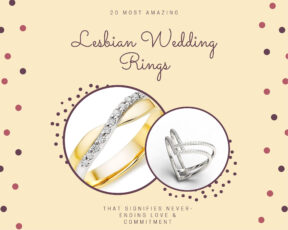The law may have changed, but are we any the wiser? What are the rules about church weddings, and who can conduct the service – a minister, a celebrant or a registrar? What’s the difference anyway? We find out…
[Same Sex Marriage Act] [Who Will Conduct Your Ceremony][Writing Your Vows]
The Same-Sex Marriage Act
Faith Weddings & The Marriage (Same Sex Couples) Act
The Marriage (Same Sex Couples) Act takes a permissive approach for religious organisations to decide whether or not they wish to conduct same sex marriages. This means individual faith groups are able to ‘opt in’ on the same basis of how they marry heterosexual couples.
Stonewall, which consulted with the government on the Marriage (Same Sex Couples) Act said:
“We felt it was very important for individual faith groups to decide whether or not they wanted to conduct same-sex marriages; after all, no religious group should be forced to do something they don’t want to do. The Church of England’s law is very much wrapped up with British law, which means that it is often the Church’s responsibility to marry couples from within their diocese.
“The Church of England made it clear that it did not want to marry same-sex couples, and to protect them from potential law suits, the government decided to explicitly forbid the Church of England from marrying same sex couples. If the Church of England changes its position on this, it is entirely possible for the government to change the law and lift the ban. It is very similar for The Church of Wales.”
Need help finding the perfect suppliers?
Explore our selection of wedding specialists for the most unique wedding.
Have questions? Ask anything, and our team of experts will be there to help you decide.
Faith groups that have expressed an interest in conducting same sex marriages include Unitarians, Liberal Jews, and Quakers.
Paul Parker, Recording Clerk for Quakers in Britain said:
“The day the first same-sex couple can marry in their Quaker meeting will be a wonderful day for marriage, and a great day for religious freedom in Britain. We see God in everyone: we are born equal, our love should be celebrated equally.”
Need help finding the perfect suppliers?
Explore our selection of wedding specialists for the most unique wedding.
Have questions? Ask anything, and our team of experts will be there to help you decide.
The Church of England, and The Church of Wales and The Catholic Church do not wish to conduct same sex marriages, but they could ‘opt in’ if they change their minds.
Who will conduct our ceremony?
If you belong to a particular faith, you may wish to be married by one of its representatives – this mean you hold your ceremony in a church, meeting room or elsewhere. But if you don’t fancy a religious-based ceremony, you’ll need to decide how you’d like it to be conducted and by whom – a Registrar or a Celebrant.
The difference between a Registrar and Celebrant is simple – Registrars are government officials who are obliged to follow a particular script for each ceremony they take. It will not contain any hymns or religious content. Celebrants, on the other hand, can tailor your ceremony and make it more personal to you, reflecting the relationship you and your partner share. They can also advise on vows, readings and music.
Registrars need to be present for the legal part of your union (something a celebrant cannot do), so you could choose to become legally married by a Registrar at a registry office, and hold your celebratory ceremony at your reception venue later, or you could ask a celebrant to take your ceremony at a licensed venue with a Registrar present.
Getting married is the one of the very few times you’re likely to be able to stand up in front of your friends and family and tell them how you feel about your partner, so why not seize the opportunity.
If you do decide to write your own vows, take time out where you can relax and think about what makes them so special.
Professional celebrant, Roxy Hotten suggests thinking back to the most treasured time you spent with your partner. “Think about how it made you feel. What was it about them that helped make it so special. Try to embrace those feelings and use your words to describe it. You don’t need to be the poet laureate to get your point across,” she says, adding “Don’t try to write what you think your partner or your guests will want to hear; write what you want to say. If you are honest and true it will come across as a sincere and beautiful moment in the ceremony.”
Find inspiration on writing vows and more information about celebrants.








